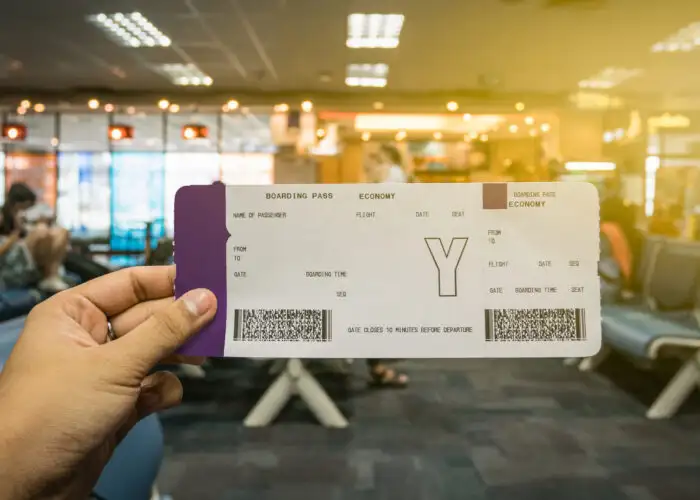You know that old saying—there’s a sucker born every minute? Don’t be one of them. Stay ahead of these travel scams to keep your vacation plans from falling apart. The schemes below may be just the tip of the iceberg when it comes to travel cons, but preparing yourself for these sneaky swindles is a good place to start.
Vacation Clubs

“The number-one travel scam is the vacation-club scam,” says consumer advocate Christopher Elliott, whose book, Scammed, lays out a helpful roadmap for being a responsible and effective shopper in a world of corporate swindles. “I’ve never come across a legitimate travel club. My advice is to run, don’t walk.”
Wholesale travel clubs claim that you’ll have access to incredibly cheap vacations if you join. However, once you pay the joining fees, you find that the deals offered aren’t any better than what you can find for yourself onlineâfor free. Elliott advises that anyone considering joining a travel club do research with a very critical eye beforehand. Simply doing an Internet search for the name of the travel company plus the word “scam” will usually reveal a host of problems experienced by other members.
Timeshare Sales

Ed Perkins, a longtime contributing editor at SmarterTravel, calls the upfront fees for selling your timeshare the biggest fraud around. “Scammers promise to get you out from under, saying they have buyers, but all they really do is take a fee, upward of $400, and do nothing,” says Perkins. Never pay upfront to have someone help you sell your timeshare. If you want out, go to a licensed company and check them out with the Better Business Bureau before listing with them. If you’re having trouble getting rid of your timeshare, work with a rental company to recoup some of the money until you can sell.
Vacation Certificates

Ed Perkins also warns against prepaid vacation certificates. “Scammers promise really great prices but deliver nothing. The idea here is to get the upfront money, then keep stalling—’Sorry, these dates are sold out; try again soon.’ They delay until people just quit trying.” Or, the company charges huge additional fees to redeem the certificates, and the trip is considerably less luxurious than promised. Before prepaying for a vacation package, be sure to research fees and blackout dates, as well as the company’s reputation.
Card Mills

Ah, the life of travel agents. Cheap hotels and airfares are thrown at their feet once they pull out their travel-agent ID cards, right? Don’t believe the hype from outfits that promise to issue you a travel-agent ID that provides access to discounts. Scammers charge hundreds of dollars for these cards, but victims who shell out will quickly find that no place will accept the fakes, and they never see any discounts. The only way to avoid this scam is not to buy a travel-agent card if you’re not a travel agent—there’s really no legal way to get around it.
Car Rental Collision Damage Waivers

Rick Steves calls the car-rental collision damage waivers (CDW) a “collision damage waiver racket.” When you rent a car, the company often pressures you to buy a CDW supplement, which will prevent you from having to pay a high insurance deductible if the car is damaged. (The deductible can be thousands of dollars before insurance kicks in.) But most major credit cards already include deductible collision coverage for free, so check your credit card terms and pay for the rental car with your credit card. Then you’ll be covered without having to shell out extra cash for phony insurance.
You Won a Free Trip!

If you’ve ever dropped your business card in a “win a free trip” drawing at a restaurant or signed up to win at a fair, you may have gotten a phone call, letter, or email claiming you’ve won a free vacation. Be wary—many of these “prizes” are actually booby traps in which you’ll have to pay hefty fees to claim the vacation or give your credit card number to “verify your eligibility,” resulting in identity theft. The Federal Trade Commission (FTC) is cracking down on these scams. Follow its guide on what to do to avoid being scammed: Get the names of resorts and airlines included in the prize and call them independently to verify the trip. Never give credit card information to someone who cold-calls you, and be sure to get details of the prize in writing before accepting.
Fake International Driving Permits

The FTC also warns against fake International Driving Permits (IDPs). Some countries require tourists to have an IDP in addition to a U.S. driver’s license. However, there are only two American associations that are legally authorized to issue IDPsâthe American Automobile Association (AAA) and the American Automobile Touring Alliance (AATA). Fraudulent companies sell fake IDPs over the Internet, but you’ll pay hundreds of dollars for a permit only to face legal problems for using the imposter IDs in another country.
Bait and Switch

The hotel you’re thinking of booking is suspiciously cheap, but the property’s website makes it look beautiful and centrally located. When you arrive, the hotel is run-down, missing amenities, and in a deserted part of townâand it won’t refund your money. Avoid this bait-and-switch scam by using websites such as our sister sites Oyster and TripAdvisor to read real customer reviews and see honest photos of the property. Check out Oyster’s Photo Fakeout Collection to see just how different brochure photos can be from real life!
Grandparent Scams

Even if you’re not currently traveling, you can still be the victim of a travel scam. The State Department warns that scammers will call a relative or a friend of someone who’s away on vacation and pretend to be the traveler in desperate need of help. The scammer usually disguises his or her voice and blames it on a bad cell phone connection; he or she will then beg the victim to send money (saying he or she has been robbed, needs money to return to the United States, or has run into legal trouble). Sometimes the scammer will even pretend to be someone from the U.S. embassy calling on behalf of the relative for money.
Before you wire money, call the State Department’s Office of Overseas Citizens Services to verify that the situation is legitimate, or call your relative directly.
Rental Property Scam

Vacation rentals are exploding in popularity. It may be tempting to go through Craigslist for a rental home, but it’s also easy to fall victim to a scam there. Scammers will place an ad and ask the victim to wire money to secure the vacation rentalâand then disappear. Or they’ll have you send money to them rather than to the actual property owner; since they do not actually have the right to rent out the property, you can’t get in. Avoid the risk by going through a reputable vacation-rental site such as HomeAway, our sister site FlipKey, or Airbnb, all of which will protect your money from fraudsters.
More from SmarterTravel:
Editor’s note: This story was originally published in 2012. It has been updated to reflect the most current information.
We hand-pick everything we recommend and select items through testing and reviews. Some products are sent to us free of charge with no incentive to offer a favorable review. We offer our unbiased opinions and do not accept compensation to review products. All items are in stock and prices are accurate at the time of publication. If you buy something through our links, we may earn a commission.
Related
Top Fares From Columbus, OH
Today's Top Travel Deals
Brought to you by ShermansTravel
Shop and Save with Country Inns...
Patricia Magaña
 Hotel & Lodging Deals
Hotel & Lodging Deals
$229 -- Chicago: Discounted Rates and...
Francesca Miele
 Hotel & Lodging Deals
$229+
Hotel & Lodging Deals
$229+
$188 -- Honolulu: Save on Oceanview...
Abigail Lamay
 Hotel & Lodging Deals
$188+
Hotel & Lodging Deals
$188+







